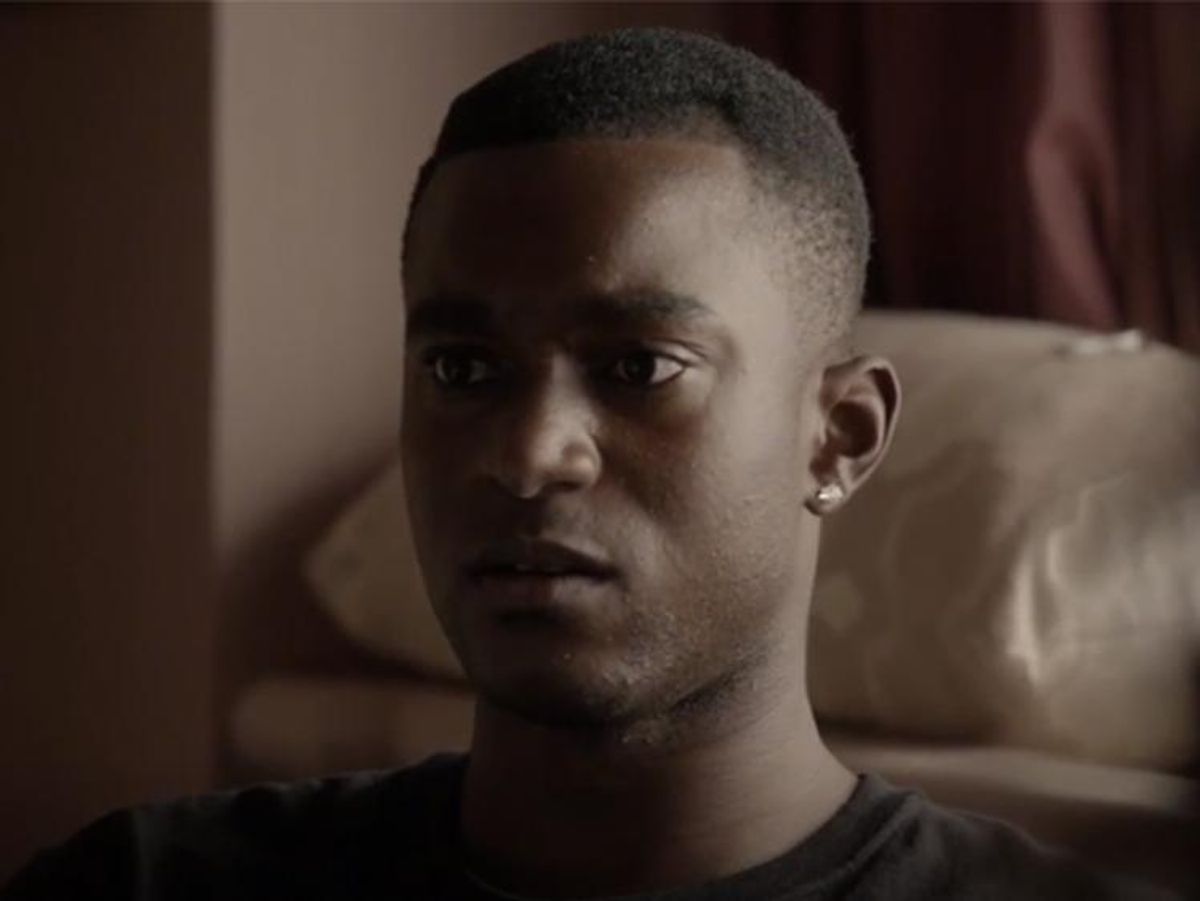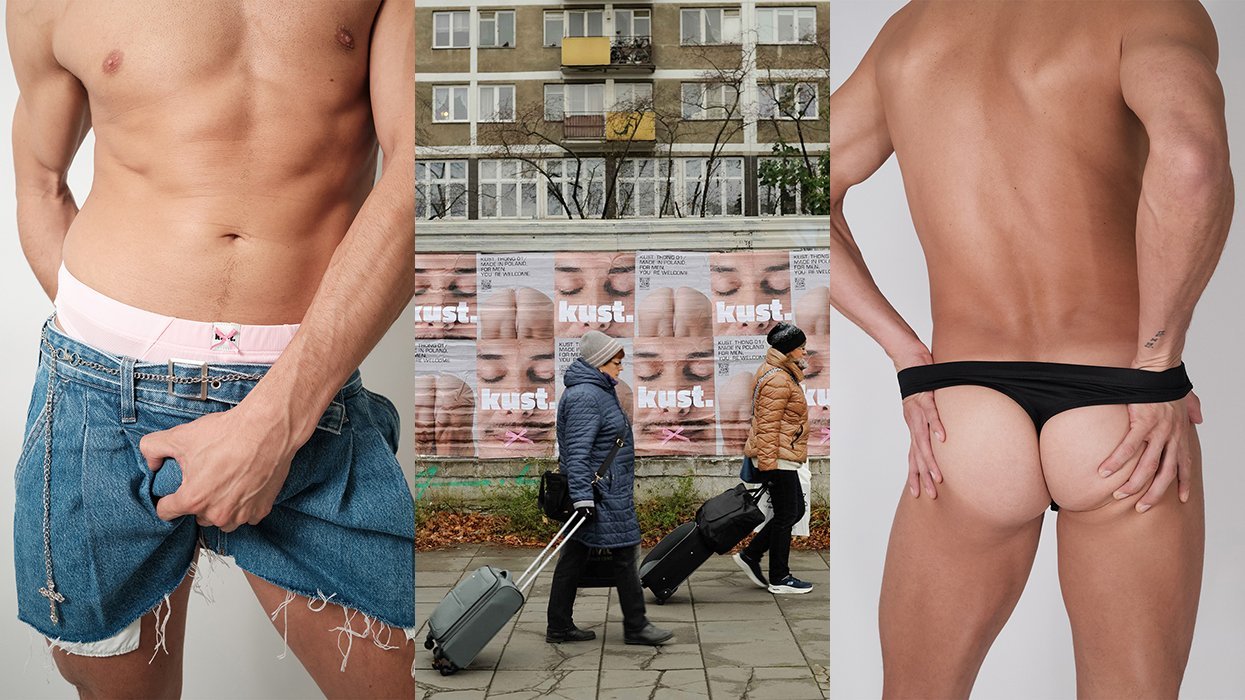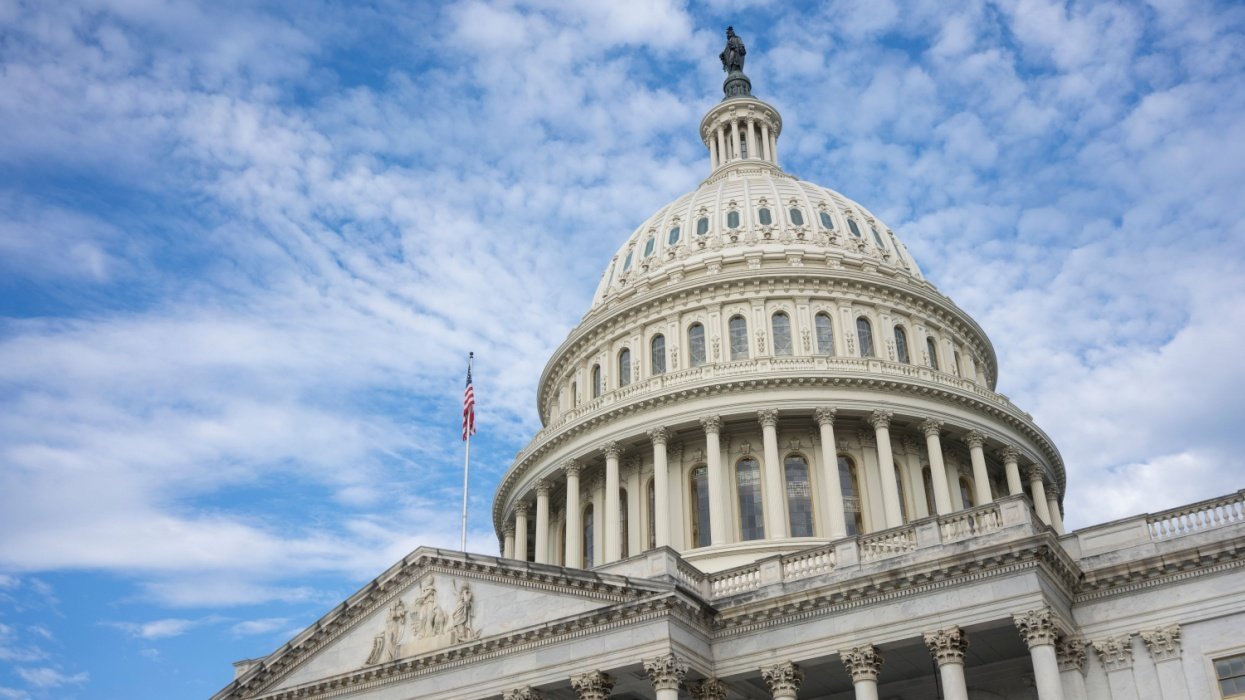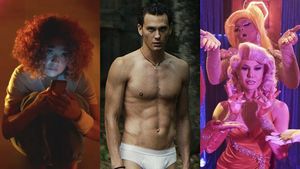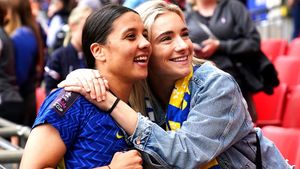VH1's freshman drama series The Breaks brings to television an intimate look at the hip-hop world in 1990. The show chronicles many aspects of the rap game from that time period through highlighting the battle of radio DJs, artist management, and the rise of women in hip-hop. Tonight's episode (spoiler alert) delves into homosexuality in a genre of music that often frowns upon gay artists and in some ways prides itself on blatant homophobia. The character J. Mic, played with such anguish and emotion by actor RJ Brown, goes into hiding after a rap battle in which another rapper claims that J. Mic is gay.
The claim, however, resonates with J. Mic in ways that lead him to go into hiding in a hotel room armed with a gun, and there he threatens to end it all. J. Mic takes the allegation seriously because in reality he is quietly living in the closet while presenting a public image of what the industry sees as the epitome of a hardcore rapper of the '90s.
"J. Mic represents the underrepresented within the hip-hop community," Brown said in a statement to The Advocate.
Ahead of episode 4's premiere, I spoke with show's executive producers and showrunners, Seith Mann (The Wire, The Walking Dead, Homeland) and John J. Strauss (Mozart in the Jungle), about the decision to include a closeted gay artist and his thoughts of suicide as the only way out.
The Advocate: Talk about the decision to include a character with so many layers in the show.
Seith Mann: The importance of having J. Mic in the show for us is back in 1990 and I would say even up until now the notion of an MC or a rapper in the industry whose sexual orientation was different from what people said was normal would not have been acceptable. There was a lot of homophobia in the business and in the music. For me, it wasn't really a question on if there was an MC or rapper that was gay or bisexual and didn't have the opportunity to be their true self because of their involvement in the industry. For us, it was a very compelling story to see what that would look like.
You cast RJ Brown (The Carrie Diaries). What was it about him that ended up landing him the role?
Mann: Hewas one of a handful of actors who came in to audition for the role, and I would say that he was head and shoulders above the rest, and -- I hope I'm not speaking out of turn -- I would say John agrees with me. He was great at articulating the lines and he just seemed grounded and realistic in his anguish, and it seems very real and not just a performance.
John J. Strauss: I think he did such a wonderful job with portraying that depth of desperation. He brought that sympathy to the role for me.
In the scene we see that he has the gun, and he is ready to take his own life before being stopped by the characters Nikki (Afton Williamson) and Lil Ray (Sinqua Walls). This is heavy. Any thoughts on what the audience should walk away thinking of this?
Strauss: I believe my takeaway would be, one should never feel so alone or so desperate and so isolated that they feel that they have to take their own life ,and I know that's the point we are trying to make when Nikki is talking to him and then Lil Ray is talking to him about nothing is worth killing yourself over and there are people around you who love you and can help you get through this. I think the tragedy is even in today's world there are people who because of their orientation who do feel completely isolated, whether it be from intolerant family or intolerant people at school or in the community. I would love for people to know that you can always reach out and you can always find somebody who will listen to you and help you.
Mann: I think it's important that people see the J. Mic characte,r and not to simplify prejudice, but often times we don't see the person, we see the label, we don't see the humanity in someone, and what I think is so great about J. Mic and what I think is so great about him being in this context, in a show that is centered around hip-hop. For those who are still caught up in homophobia and hopefully they see J. Mic's humanity.
It hasn't always been easy for hip-hop to make strides toward diversity. Some would argue that Frank Ocean was the first gay or bi artist to be true to himself in the mainstream hip-hop world, but even he has faced backlash for his coming-out. In recent years, some out and proud gay rappers have carved out its own lane in order to blaze a path where everyone has a seat at the table. Independent artists like Siir Brock (Love & Hip Hop: Hollywood), Fly Young Red (Out in Hip Hop & Throw That Boy P*ssy), Bry'Nt (Explain & Butterfly With Wet Wings) and EarthToneMuziq (GMALE: The EP) are blazing a trail showing there is room for LGBT artists in hip-hop, and a fictional character like J. Mic can make an impression.
The Breaks airs on VH1 Mondays at 10 p.m. Eastern. Watch a clip from tonight's episode below.
